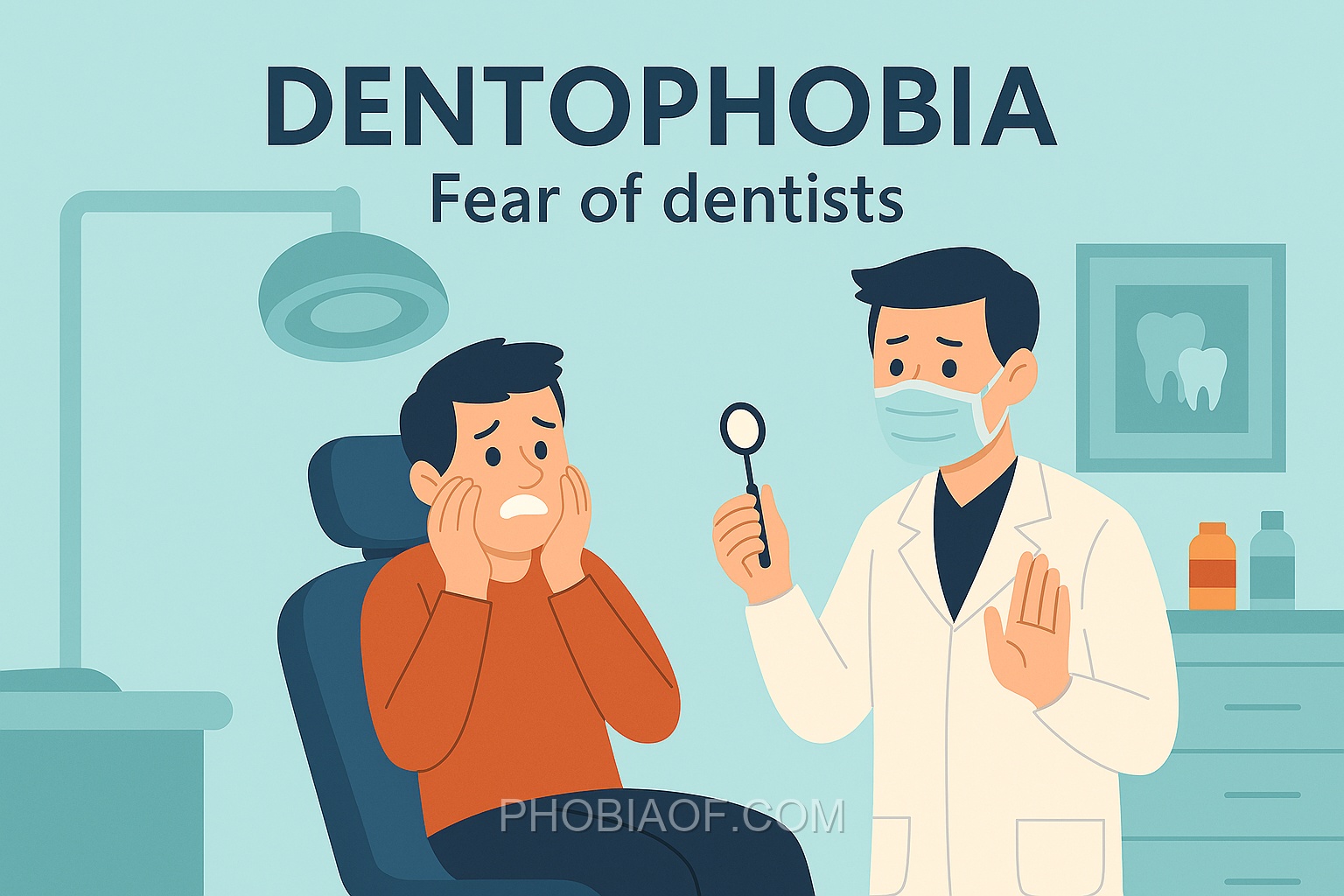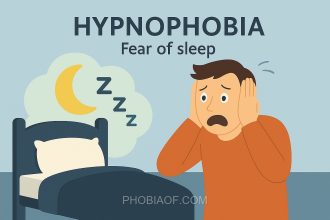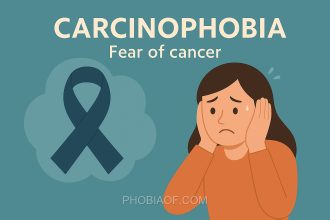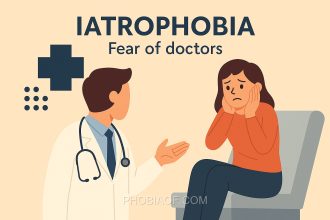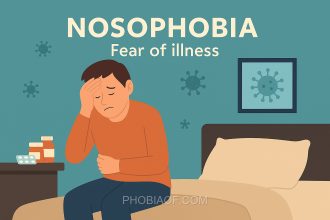Have you ever felt a wave of anxiety just thinking about your next dental appointment? If so, you’re not alone. This common apprehension is known as Dentophobia, a term derived from the Greek words “odonto,” meaning tooth, and “phobos,” which means fear.
Dentophobia, or the fear of dentists, is a widespread fear that can cause people to avoid dental visits, sometimes to the detriment of their oral health. While it’s perfectly normal to feel a little uneasy about dental procedures, dentophobia goes beyond typical nervousness, manifesting as intense fear or even panic at the thought of visiting a dentist.
People with dentophobia might experience a range of symptoms, including:
- Increased anxiety or stress leading up to a dental appointment
- Feelings of dread when thinking about dental procedures
- Physical symptoms such as sweating, increased heart rate, or nausea
- In severe cases, complete avoidance of dental care, which can lead to significant oral health issues
Understanding and addressing dentophobia is crucial because regular dental care is essential for maintaining overall health. With compassionate support and professional help, individuals can overcome their fear and ensure they receive the oral care they need.
Causes of Dentophobia
Dentophobia, the fear of dentists or dental procedures, is a common phobia that can affect people of all ages. Understanding its causes can help in addressing and managing this fear effectively. Several factors may contribute to the development of dentophobia, ranging from genetic predispositions to environmental influences.
- Genetic Predisposition:
Some individuals may be genetically predisposed to anxiety disorders, including phobias like dentophobia. If close family members have a history of similar fears, there’s a higher likelihood that others in the family might also develop such phobias.
- Traumatic Experiences:
A negative or painful experience at the dentist can lead to the development of dentophobia. For instance, a particularly painful procedure or a lack of empathy from a dental professional can create lasting fear and anxiety associated with dental care.
- Learned Behavior:
Children often learn behaviors by observing adults. If a parent or caregiver exhibits fear or anxiety about dental visits, a child may adopt similar feelings. This learned behavior can persist into adulthood, manifesting as dentophobia.
- Psychological and Environmental Factors:
Other psychological issues, such as a generalized anxiety disorder, can contribute to dentophobia. Additionally, environmental factors like hearing about others’ negative dental experiences or consuming media that portrays dental visits in a frightening manner can exacerbate fears.
Interestingly, some research suggests that the fear of pain is a significant component of dentophobia. A study found that individuals with this phobia often overestimate the pain they might experience during dental treatments. Understanding these underlying causes is crucial for developing effective coping strategies and therapies to help individuals overcome their fear and maintain good oral health.
Symptoms of Dentophobia
Dentophobia, the fear of dentists or dental procedures, can elicit intense fear or anxiety that significantly impacts an individual’s well-being. Understanding the symptoms can help in recognizing and addressing this phobia. The symptoms of dentophobia typically manifest in a combination of physical, emotional, and behavioral signs:
- Intense Fear or Anxiety: An overwhelming fear or anxiety at the thought of visiting the dentist or undergoing dental procedures.
- Panic Attacks: Experiencing panic attacks at the mere mention or thought of dental appointments.
- Sweating: Excessive sweating, especially when thinking about or nearing a dental clinic.
- Rapid Heartbeat: An increased heart rate when faced with the prospect of a dental visit.
- Shortness of Breath: Difficulty breathing or feeling breathless when anticipating dental care.
- Nausea: Feeling nauseated or experiencing gastrointestinal distress related to dental fears.
- Avoidance of Triggers: Actively avoiding dental appointments, even when experiencing dental issues.
- Overwhelming Dread: A profound sense of dread when thinking about dental care, often leading to sleep disturbances or intrusive thoughts.
- Difficulty Sleeping: Trouble sleeping the night before a dental appointment due to anxiety.
- Emotional Distress: Feelings of helplessness, embarrassment, or shame about the fear of dental procedures.
When severe, these symptoms can significantly interfere with daily life, leading to neglected dental health and increased anxiety over time.
Treatment for Fear of Dentists
If you are experiencing a fear of dentists, known as dentophobia, it’s important to know that you are not alone and that this phobia can be effectively treated and managed over time. With the right approach and support, you can overcome your fears and take control of your dental health.
Therapies for Dentophobia
Several proven therapies can help you manage and overcome dentophobia. Below are some of the most effective options:
- Exposure Therapy: This involves gradually facing your fear in a controlled and safe environment. By slowly exposing yourself to the dentist’s office and progressively more challenging scenarios, you can reduce anxiety over time.
- Cognitive-Behavioral Therapy (CBT): CBT helps you change the fearful thoughts and behaviors associated with dental visits. By working with a therapist, you can develop healthier thought patterns and coping mechanisms.
- Counseling: Talking with a counselor can provide support and guidance, helping you to understand and address your fear of dentists.
Self-Help Coping Techniques
In addition to professional therapy, self-help techniques can complement your efforts to manage dentophobia:
- Relaxation Exercises: Techniques such as deep breathing, progressive muscle relaxation, and visualization can help reduce anxiety before and during dental visits.
- Meditation: Regular meditation practice can enhance your ability to stay calm and focused, reducing overall anxiety levels.
- Support Groups: Joining a support group can connect you with others who are facing similar challenges, providing encouragement and shared coping strategies.
Medication
In severe cases, medication such as anti-anxiety medication may be prescribed by a healthcare professional. However, it is generally recommended to focus on therapy and coping skills as the primary approach.
Remember, seeking professional help is a positive step if dentophobia is interfering with your life. A mental health professional or dentist experienced with dental phobias can guide you in developing an effective treatment plan.
Overcoming dentophobia is a journey that may take time, but with dedication and support, you can achieve a healthier relationship with dental care.
Conclusion
Understanding dentophobia, the fear of dentists, is a crucial step towards addressing it effectively. By recognizing the underlying causes and identifying the symptoms, individuals can begin to take control of their fears and anxieties. This awareness not only empowers them but also provides a foundation for building a strategy to cope with this phobia.
It is important to remember that many people successfully manage or even overcome their phobias over time, especially with the right support and resources. Whether it’s through therapy, speaking with a doctor, or employing relaxation techniques, there are numerous pathways to finding relief and regaining confidence in dental care settings.
Take heart in knowing that overcoming dentophobia is possible. If you or someone you know is struggling with this fear, consider reaching out for professional help. A therapist or healthcare provider can offer guidance tailored to your specific needs and help you develop a personalized plan for managing your fear. Remember, you are not alone, and taking the first step towards addressing your phobia is a courageous and commendable action.
